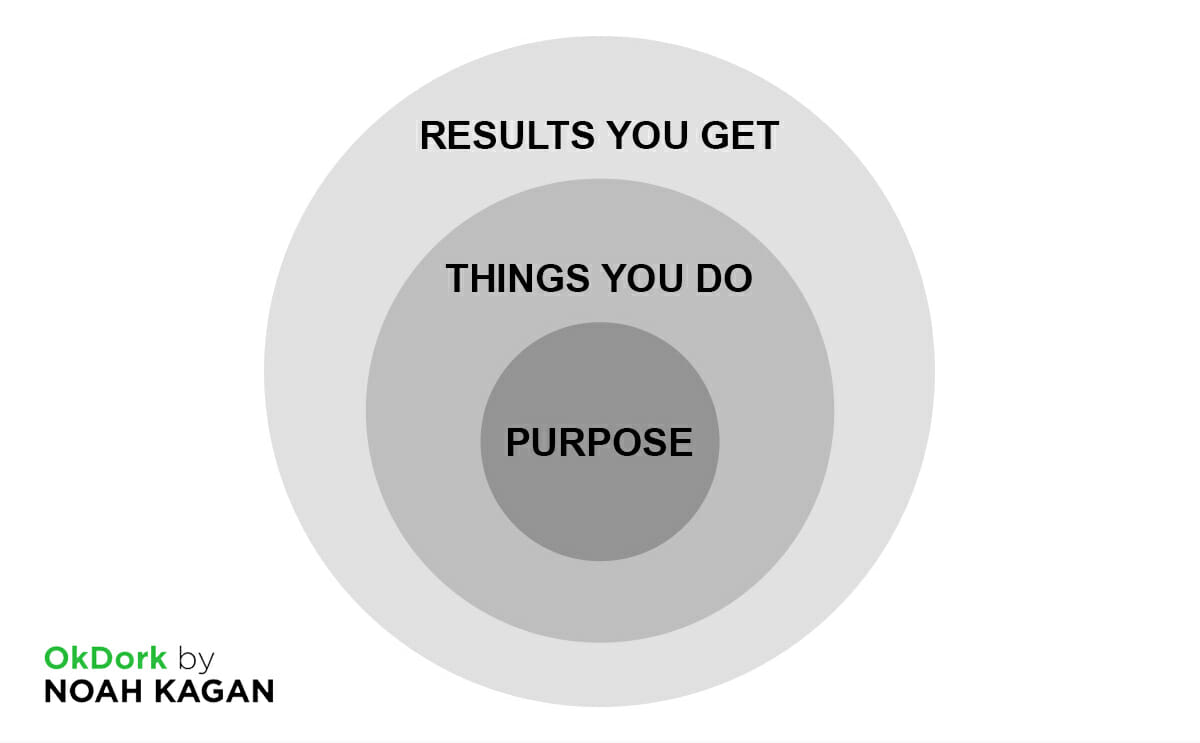Why You Shouldn't Be an Entrepreneur Advice from a guy who runs an 8-figure business.
By Noah Kagan •

Opinions expressed by Entrepreneur contributors are their own.

Having the freedom to choose your own schedule and work when you want. A chance to work from the beach or just work from the comfort of your own home. Building your dream product or service exactly how you decide. No boss to tell you differently, no compromises to make, no tasks you're forced to do.
Being an entrepreneur sounds great -- except when it isn't.
I speak from experience. While sharing top marketing tips on OkDork, I founded AppSumo and Sumo, which is now an 8-figure business. (Before that, I saw what it's like to build a business as employee no. 30 at Facebook and employee no. 4 at Mint.com.)
For all the freedom to choose your own schedule, there are 90+ hour workweeks. For every day working from the beach, there are months spent grinding away in a small apartment. For every product or service you dream of creating exactly how you want, there are bad reviews, customer complaints and months with low sales.
Related: Why This Entrepreneur Does What He Wants, Not What He's Told
I've learned a lot from my jobs, businesses I built and fellow entrepreneurs I help. One thing I learned from teaching entrepreneurship: Entrepreneurship isn't for everyone. The truth is, while entrepreneurship can be glamourous, that's not always the case. And there's no shame in being a full-time employee for someone else. In fact, it might be better suited for you.
To help you figure out if you're better suited for entrepreneurship or being an employee, I developed the "Four Ps" -- a framework you can use to understand your next step.
1. Find your purpose (and do work that aligns with it).
Before I joined Facebook, Mint.com and started my own company, I was a cubicle monkey at Intel. Frankly, I couldn't stand working there. It was mind-numbing. I was bored every day, and I wasn't doing anything purposeful. But there's one thing Intel did help me do -- start to find my purpose. I wanted to leave Intel as quickly as I possibly could, so I went out and tried everything.

One of the biggest misconceptions about purpose is if we sit around and wait, it'll magically fall from the sky. In my experience, this isn't true. Purpose is messy. As I sought my purpose, I tried hundreds of different activities -- promoting amazing products, helping the underdog and selling products at reasonable prices.
After lots of trial-and-error, I learned I loved testing out new product ideas. My new obsession with building product ideas helped me start defining my purpose and re-focus my career. I quit Intel and joined Facebook, where I was responsible for building new product ideas as a product manager for the company. After I was fired from Facebook, I focused on doing more work aligned with my purpose of helping market new products. I became the marketing director of Mint.com and helped grow the company from zero users to 100,000 users in six months.
There are likely hundreds, maybe thousands, of companies you could use your purpose to help grow. Even better, you don't have to go through the ups-and-downs of entrepreneurship to bring your purpose to the world.
- If you want to work for a startup, have you searched on Small Cos.?
- If you're crazy about new product ideas, have your browsed ProductHunt?
- If you want to work remotely and travel the world, have you checked RemoteOk?
And if you don't know what your purpose is, get out and start trying things. Becoming an entrepreneur isn't the only path. Working on a project or with a company aligned with your purpose is possible.
2. Believe in the product you're building.
There are countless teams working on products they love. Product and software designers at Apple are making amazing devices, including the iPhone or Macbook you're reading this on. Sales professionals are bringing more incredible, inexpensive products to Amazon so you can order everything you need without going to the store. Elon Musk and the team at SpaceX are designing rockets to send humans to Mars
The truth is, being founder and CEO brings a lot of boring administrative work, like meetings, hiring and coordinating between teams. If you're someone who enjoys getting your hands dirty on products you love, it might be more fulfilling working for a company where you deal with less administrative tasks.
Ask yourself:
- What are some products you're using every day?
- What are new ideas you like that you can help build?
- What are some things you enjoy using and would love to improve?
Instead of creating your own product, think about contributing your expertise to an existing business with the product you love. Not sure where to start? Go check out Kickstarter, and reach out to people behind the products you love.
Related: For Startups, Do You Bet on the Jockey or the Horse?
3. Work with people smarter than you.
The "solopreneur" dream is much less fun than what the media portrays. In reality, you're locked away in a studio apartment, eating ramen noodles and trying to execute an idea all by yourself.
The truth is, we all need a support network. Here's the team behind the Sumo Group.

Motivational speaker Jim Rohn once said, "you're the average of the five people you spend the most time with." Who's in your inner circle? When we surround ourselves with brilliant people, we reach heights we couldn't get to on our own. For example:
- The "PayPal Mafia" was a group of early PayPal employees who pushed each other every day. Four group members -- Peter Thiel, Musk, Reid Hoffman and Ken Howery -- are now billionaires.
- Before Malcolm Gladwell wrote his first book, he was a journalist for The Washington Post, covering topics about business and sciences. In his own words, his 10 years at the Post contribute to his success as a writer now.
- Some early employees at Facebook used their experience to create startups. Steve Chen cofounded YouTube. Adam D'Angelo founded Quora.
When I was with Facebook, I felt like the dumbest person on the team. But, this was also a time where I grew the most. Without the support, motivation and learnings from our all-star team of early employees at Facebook, I wouldn't have pushed myself to where I am today.
4. You need to get paid.
It's sensitive to talk about money, but you need to get paid! Here's something most people don't know: the first three years I built AppSumo, I paid myself only $40,000 per year. It sucked. But I'm not the only one. Here are some other famous entrepreneurs and what they went through in their first few years in business:
- When Musk started his first startup, Zip2, he borrowed $28,000 from his father and slept in the office for the first three months.
- When Jeff Bezos launched Amazon selling books, he packed hundreds of books by hand.
- Arianna Huffington, the founder of Huffington Post, had her first book rejected 36 times and first launched HuffPo to mixed reviews.
And these are just the successful entrepreneurs. What if you're scraping by, trying to make it big, but your startup fails? Instead, if you're more risk-averse (like me) it can be smart to join a company, get a stable income, learn everything you can, and create your business idea on the side.
(Bonus) 5. Problems. Who said entrepreneur life was easy?
Bill Gates started his software company and became the richest man on the planet. Mark Zuckerberg built a website with user's photos and became the largest social media site ever. Musk has his eyes set on Mars with SpaceX.
On the surface, it sounds great. But here's what else entrepreneurs have to deal with:
- Taxes
- People quitting
- Technical issues
- Non-stop emails, phone calls and messages
- 20 hours worth of meetings every week
Related: Will Entrepreneurship Make You Rich? A Realistic Perspective.
I get it. It's attractive to start a business from the outside. But being an entrepreneur only sounds great until you get the "bonus" problems. An entrepreneur is constantly dealing with the less sexy issues like taxes, recruiting, solving team fights and more.
If you're falling into the limbo of deciding which path you should take, this "Four Ps" framework will guide you to the right direction. Remember, you don't need to be an entrepreneur to find work which gives you purpose, helps you create a great product, surrounds you with amazing people and pays you well.












